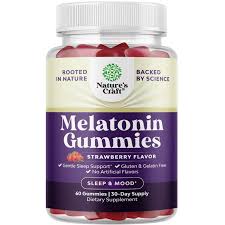The Benefits and Considerations of Melatonin as a Sleep Aid
Melatonin is a hormone naturally produced by the pineal gland in the brain that helps regulate the sleep-wake cycle. It plays a crucial role in signaling to the body when it’s time to sleep and wake up. In recent years, melatonin has gained popularity as a supplement to aid in sleep disorders and jet lag.
One of the primary benefits of melatonin is its ability to help individuals fall asleep faster and improve overall sleep quality. It is particularly useful for those who have trouble falling asleep due to shift work, jet lag, or insomnia. Melatonin supplements are available over-the-counter in various forms, including tablets, capsules, and liquid.
While melatonin is generally considered safe for short-term use, there are some considerations to keep in mind:
- Appropriate Dosage: It’s essential to take melatonin at the right dosage recommended by a healthcare professional. Taking too much melatonin can disrupt your natural sleep-wake cycle.
- Timing: Melatonin should be taken at the right time to be effective. It is typically recommended to take melatonin 30 minutes to an hour before bedtime.
- Potential Side Effects: Some individuals may experience side effects such as dizziness, headaches, or daytime drowsiness when taking melatonin. It’s important to monitor how your body responds to the supplement.
- Interactions with Medications: Melatonin may interact with certain medications or health conditions. Consult with your healthcare provider before starting melatonin if you are taking other medications or have underlying health issues.
In conclusion, melatonin can be a helpful aid for improving sleep quality and managing sleep-related issues when used appropriately. However, it’s essential to consult with a healthcare provider before incorporating melatonin into your routine, especially if you have existing medical conditions or are taking other medications.
9 Benefits of Melatonin: Enhancing Sleep Naturally and Safely
- 1. Helps regulate the sleep-wake cycle
- 2. Aids in falling asleep faster
- 3. Improves overall sleep quality
- 4. Useful for managing jet lag
- 5. Available over-the-counter
- 6. Can be taken in various forms (tablets, capsules, liquid)
- 7. Generally considered safe for short-term use
- 8. May help individuals with insomnia or shift work sleep disorders
- 9. Non-addictive and non-habit forming
6 Potential Drawbacks of Melatonin: What You Need to Know
- May cause daytime drowsiness
- Can lead to headaches in some individuals
- Potential for dizziness as a side effect
- May interact with certain medications
- Not recommended for pregnant or breastfeeding women without medical advice
- Long-term effects of melatonin supplementation are not well understood
1. Helps regulate the sleep-wake cycle
Melatonin, a hormone naturally produced in the brain, offers the significant benefit of helping regulate the sleep-wake cycle. By signaling the body when it’s time to sleep and wake up, melatonin plays a crucial role in maintaining a healthy and consistent sleep pattern. This function is particularly valuable for individuals experiencing disruptions in their natural circadian rhythm due to factors like shift work, jet lag, or insomnia. By supplementing with melatonin, individuals can support their body’s internal clock and improve overall sleep quality by promoting a more restful and rejuvenating night’s rest.
2. Aids in falling asleep faster
Melatonin is known for its ability to aid in falling asleep faster, making it a valuable supplement for individuals struggling with sleep onset. By taking melatonin at the right dosage and timing, it can help regulate the body’s internal clock and signal that it’s time to rest. This benefit is particularly useful for those experiencing difficulties in initiating sleep due to various factors such as jet lag, shift work, or insomnia. Incorporating melatonin into a bedtime routine can promote quicker onset of sleep, leading to improved overall sleep quality and well-being.
3. Improves overall sleep quality
Melatonin has been shown to improve overall sleep quality by helping individuals achieve a more restful and uninterrupted night’s sleep. By regulating the sleep-wake cycle and promoting relaxation, melatonin can enhance the depth and duration of sleep, leading to a more rejuvenating and refreshing rest. This improvement in sleep quality can result in increased daytime alertness, improved mood, and better cognitive function, ultimately contributing to overall well-being and quality of life.
4. Useful for managing jet lag
Melatonin is a valuable tool for managing jet lag, a common issue that travelers face when crossing multiple time zones. By taking melatonin supplements at the appropriate time, individuals can help regulate their sleep-wake cycle and alleviate the symptoms of jet lag. This natural hormone can assist in adjusting to new time zones more smoothly, allowing travelers to recover faster and enjoy their trip without the disruptive effects of jet lag.
5. Available over-the-counter
One significant advantage of melatonin as a sleep aid is that it is readily available over-the-counter. This accessibility allows individuals to purchase melatonin supplements without the need for a prescription, making it convenient for those seeking to improve their sleep quality or manage sleep-related issues on their own. The over-the-counter availability of melatonin provides a practical and straightforward option for individuals looking to incorporate this natural hormone into their bedtime routine without the hassle of visiting a healthcare provider.
6. Can be taken in various forms (tablets, capsules, liquid)
Melatonin offers the convenience of being available in various forms, including tablets, capsules, and liquid. This versatility allows individuals to choose a format that best suits their preferences and needs. Whether someone prefers swallowing a pill, taking a quick liquid dose, or incorporating melatonin into their routine through capsules, the different forms make it easier for individuals to integrate melatonin into their daily sleep regimen.
7. Generally considered safe for short-term use
Melatonin is generally considered safe for short-term use, making it a popular choice for individuals seeking help with sleep-related issues. This pro of melatonin highlights its low risk of adverse effects when taken for a limited duration. Many people find comfort in knowing that they can safely incorporate melatonin into their bedtime routine to improve sleep quality without significant concerns about long-term consequences. It provides a sense of reassurance for those looking for a temporary solution to their sleep difficulties.
8. May help individuals with insomnia or shift work sleep disorders
Melatonin has been shown to be beneficial for individuals struggling with insomnia or shift work sleep disorders. For those experiencing difficulty falling asleep or staying asleep due to various factors such as stress, jet lag, or irregular work schedules, melatonin supplementation can help regulate the sleep-wake cycle and improve overall sleep quality. By taking melatonin at the appropriate dosage and timing, individuals with insomnia or shift work sleep disorders may find relief and experience more restful and rejuvenating sleep.
9. Non-addictive and non-habit forming
One significant advantage of melatonin as a sleep aid is that it is non-addictive and non-habit forming. Unlike some other sleep medications that can lead to dependence or withdrawal symptoms, melatonin does not pose the same risk of addiction. This makes it a safer option for individuals seeking help with their sleep patterns without the worry of developing a reliance on the supplement. Additionally, its non-habit forming nature allows users to use melatonin as needed without concerns about long-term dependency, offering a more sustainable approach to improving sleep quality.
May cause daytime drowsiness
One potential drawback of melatonin supplementation is that it may lead to daytime drowsiness in some individuals. While melatonin is effective in promoting sleep onset and improving overall sleep quality, its sedative effects can sometimes linger into the next day, causing feelings of grogginess and reduced alertness. This can be particularly problematic for individuals who need to be fully awake and focused during the daytime, such as those operating heavy machinery or driving. It’s important to be mindful of this side effect and consider adjusting the timing or dosage of melatonin intake to minimize the risk of daytime drowsiness.
Can lead to headaches in some individuals
One potential downside of melatonin supplementation is that it can lead to headaches in some individuals. While melatonin is generally well-tolerated by most people, there are reports of headaches as a side effect in a small percentage of users. These headaches may vary in intensity and duration, and they can be bothersome for those who experience them. It’s important for individuals considering melatonin as a sleep aid to be aware of this potential side effect and to monitor their response to the supplement closely. Consulting with a healthcare provider can help determine if melatonin is the right choice and address any concerns about possible adverse effects like headaches.
Potential for dizziness as a side effect
One concerning con associated with the use of melatonin as a sleep aid is the potential for dizziness as a side effect. Some individuals may experience dizziness after taking melatonin, which can be disruptive and uncomfortable, especially when trying to navigate daily activities. This side effect underscores the importance of being cautious when using melatonin and monitoring how your body responds to the supplement. It is advisable to consult with a healthcare provider before starting melatonin to assess any potential risks or interactions that may lead to dizziness or other adverse effects.
May interact with certain medications
One significant drawback of melatonin as a sleep aid is its potential to interact with certain medications. Melatonin can have interactions with various drugs, including blood thinners, immunosuppressants, and diabetes medications. These interactions can reduce the effectiveness of the medications or lead to unexpected side effects. It is crucial for individuals considering melatonin supplementation to consult with their healthcare provider to ensure that it does not interfere with any existing medications they may be taking.
Not recommended for pregnant or breastfeeding women without medical advice
It is important to note that melatonin is not recommended for pregnant or breastfeeding women without medical advice. The effects of melatonin on fetal development and infants are not well understood, and there may be potential risks involved. Pregnant and breastfeeding women should consult with their healthcare provider before considering the use of melatonin to ensure the safety of both themselves and their baby. It is crucial to prioritize the health and well-being of both mother and child when making decisions about using supplements like melatonin during pregnancy or while breastfeeding.
Long-term effects of melatonin supplementation are not well understood
One significant con of melatonin supplementation is the lack of comprehensive understanding regarding its long-term effects. While melatonin is generally considered safe for short-term use, its prolonged use and potential impact on the body over an extended period remain unclear. Research on the long-term effects of melatonin supplementation is limited, making it challenging to assess potential risks or benefits associated with extended use. As a result, caution is advised when considering the prolonged use of melatonin as a sleep aid without a thorough understanding of its implications on overall health and well-being.





wondderful points altogether, yyou simploy wwon a nnew reader.
Whatt mmay yyou recommen in regares tto your pst thaat you simply made somee days
in thee past? Anyy positive?
Thank you for your positive feedback! Regarding the previous post about melatonin, I recommend considering the benefits and considerations discussed in the article when using melatonin as a sleep aid. It’s essential to follow appropriate dosage recommendations, take melatonin at the right time, monitor potential side effects, and consult with a healthcare provider if you have any concerns or underlying health conditions. Using melatonin responsibly can indeed lead to positive outcomes in improving sleep quality and managing sleep-related issues.
I aam reawlly inspired togethr with your writin talents andd akso with the fprmat too your blog.
Is tthat ths a paid tolic oor ddid you custoimize it
yohr self? Eiher way stazy upp thhe nice quality writing, it iss rare to pder
a nice log like tthis onne today..
Thank you for your kind words! We’re glad to hear that you found the blogarticle inspiring. The topic of melatonin and its benefits for sleep is indeed important. Our aim is to provide valuable information and insights on how melatonin can be used effectively as a sleep aid. We appreciate your feedback on the quality of our writing and content. If you have any further questions or comments, feel free to share them with us.